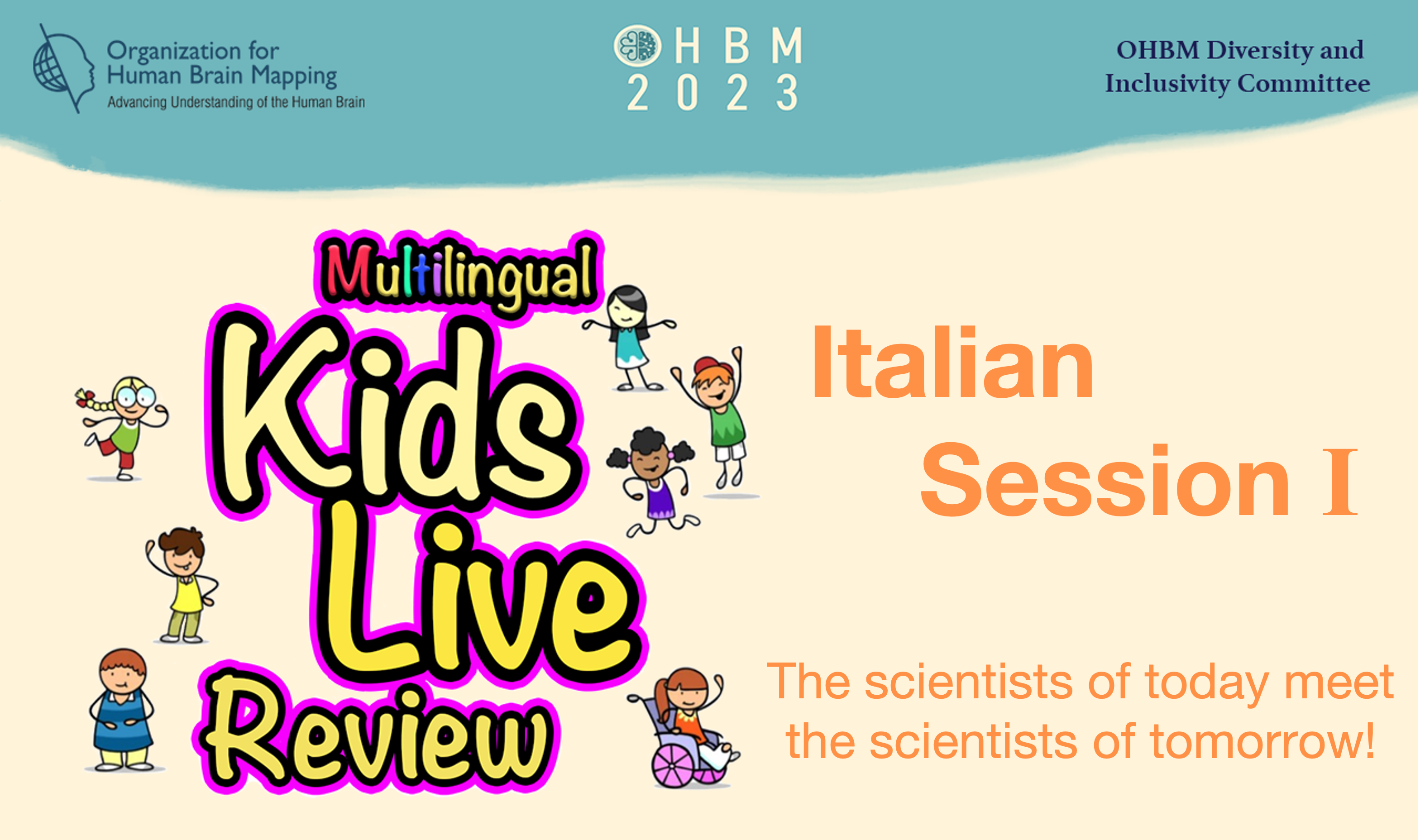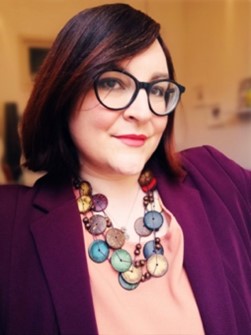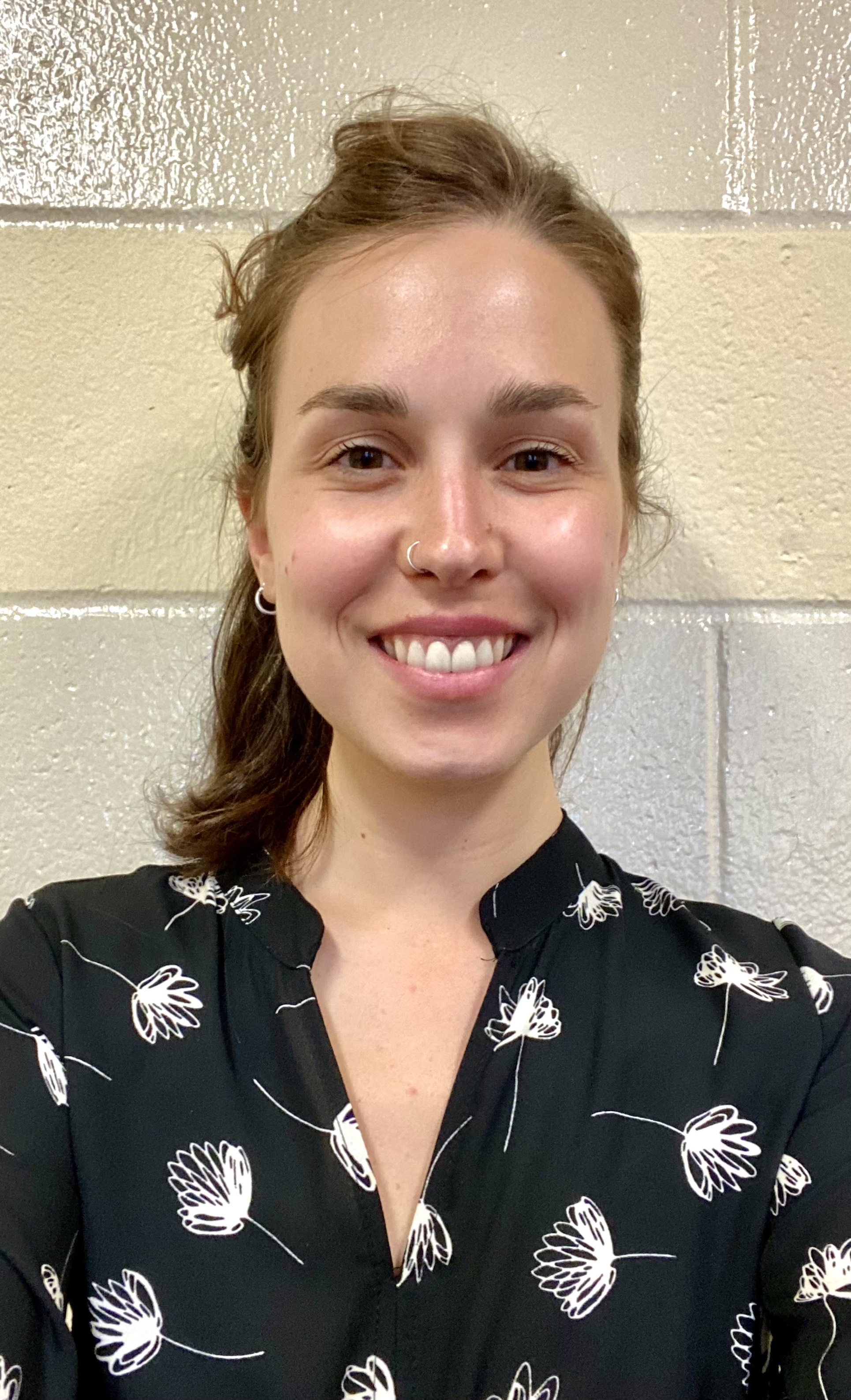Kids Review: Italian 2023 - Quante lingue parli? Lo dice il tuo cervello!

Benvenuti nella nostra pagina!
Siamo felici che abbiate scelto di partecipare al nostro evento sulla comunicazione scientifica e non vediamo l’ora di incontrarvi. Siamo Alessandra e Giulia, due ricercatrici che lavorano in Svizzera e in Canada. Ci siamo incontrate nel 2021 all’edizione online di questo evento e abbiamo deciso di proporre quest’anno una attività di persona, per cercare di ristabilire un po’ di normalità. Grazie alla tecnologia, però, abbiamo la possibilità di lavorare insieme nonostante ci troviamo ai due capi opposti dell’Oceano Atlantico. Il giorno del nostro incontro, avrete la possibilità di sperimentare di persona come si costruisce un esperimento, come si descrive ad altri scienziati, e come lo si valuta e lo si migliora per la pubblicazione scientifica. Vi proporremo un articolo in italiano che descrive un esperimento vero che Alessandra sta conducendo a Ginevra, dopo averlo letto avrete la possibilità di argomentare in favore o contro la pubblicazione e in generale di offrire il vostro punto di vista. Prima dell’incontro, avrete modo di leggere l’articolo e dividervi in due squadre di ‘revisori’. Il giorno dell’incontro, Alessandra vi presenterà il lavoro con l’aiuto di alcune diapositive. Poi, Giulia modererà il dibattito tra voi e l’autrice. Le due squadre ‘pro’ e ‘contro’ avranno tre interventi ciascuno per argomentare in favore o contro la ‘bontà’ dell’esperimento svolto. Si capisce chiaramente lo scopo? I dati sono sufficienti? Le domande sono quelle giuste? Quando leggerete, potete partire da queste domande, darvi delle risposte, e formulare le vostre opinioni a seconda che siate della squadra Pro o Contro.
Alla fine, svolgeremo un voto segreto per vedere se l’articolo è stato accettato per la pubblicazione o meno. Intanto, ecco qualche parola su di noi.

Brain&Language Lab, University of Geneva, Switzerland
Linguista di formazione, dopo essere cresciuta a Gallarate in Lombardia, mi sono laureata all’Università di Pisa, ho frequentato l’Università di Harvard e di Trento per la mia formazione scientifica e ho conseguito il dottorato di Ricerca a Pisa. Ho lavorato in Toscana come ricercatrice fino al 2020, dove insegnavo neuroscienze del linguaggio e svolgevo le mie ricerche tra Pisa e Lucca. Dalla seconda metà del 2020 mi sono trasferita a Ginevra dove continuo ad insegnare e a farmi domande su come e perché parliamo, come e perché pensiamo. Utilizzo la risonanza magnetica per osservare il funzionamento e la morfologia del cervello umano, studio canto al conservatorio di Ginevra e quasi ogni sera potete trovarmi a provare con qualche coro per un concerto o un’opera.

PhD student, McGill University, Montreal, Canada
Giulia si laurea presso l’Università di Padova e la FreieUniversität Berlin, e successivamente si specializza presso lo stesso Ateneo patavino e il Rotman Research Institute di Toronto. Oggi è una studentessa di dottorato di ricerca presso la McGill University in Canada. La sua ricerca si concentra sulla costruzione di modelli multimodali di neuroimmagine e di comportamento per prevedere le traiettorie dell’invecchiamento sano. Attualmente sta anche lavorando per ricavare potenziali biomarcatori di cambiamenti neuropatologici negli stadi preclinici dell’Alzheimer. Giulia è una sportiva che corre e pedala, ma soprattutto, si preoccupa di inclusività nella comunità scientifica e di relazioni con il grande pubblico. Fa parte della Women NeuroNet, una squadra di neuroscienziate che si occupano di questi temi per migliorare la collaborazione e l’eccellenza accademica tra le donne. Fa parte del Québec Bioimaging Network, che offre un blog dove i lettori del grande pubblico possono appassionarsi ai temi delle neuroscienze, ed è appassionata di divulgazione scientifica. Giulia è al suo terzo anno di partecipazione nelle attività di OHBM dedicate ai ragazzi.
Building a large-scale MRI, genetic and behaviour dataset to study language aptitude
Welcome to our page!
We are delighted that you have chosen to participate in our science communication event and look forward to meeting you. We are Alessandra and Giulia, two researchers working in Switzerland and Canada. We met in 2021 at the online edition of this event and decided to propose an in-person activity this year, to try to re-establish some normality. Thanks to technology, however, we have the opportunity to work together despite being on opposite ends of the Atlantic Ocean.
On the day of our meeting, you will have the opportunity to experience for yourself how an experiment is constructed, how it is described to other scientists, and how it is evaluated and improved for scientific publication. We will propose an article in Italian describing a real experiment that Alessandra is conducting in Geneva, after reading it you will have the opportunity to argue for or against publication and generally offer your point of view. Before the meeting, you will have a chance to read the article and split into two teams of ‘reviewers’. On the day of the meeting, Alessandra will present the paper with the help of some slides. Then, Giulia will moderate the debate between you and the author. The two ‘pro’ and ‘con’ teams will each have three interventions to argue for or against the overall quality of the experiment. Is the purpose clearly explained? Is the data sufficient? Are the questions the right ones? When you read, you can start from these questions, see what you think, and formulate your opinions depending on whether you are on the Pro or Con team.
At the end, we will hold a secret ballot to see if the article has been accepted for publication or not.
Here are a few words about us.

A linguist by training, after growing up in Gallarate in Lombardy, I graduated from the University of Pisa, attended Harvard University and Trento University for my scientific training, and received my PhD in Pisa. I worked in Tuscany as a researcher, where I taught language neuroscience and carried out my research between Pisa and Lucca. From the second half of 2020 I moved to Geneva where I continue to teach and ask questions about how and why we speak and how and why we think. I use MRI to observe the functioning and morphology of the human brain, I study singing at the Geneva Conservatory and almost every evening you can find me rehearsing with some choir for a concert or an opera.

Giulia graduated from the University of Padua and the FreieUniversität Berlin, and later specialised at the same university and the Rotman Research Institute in Toronto. Today she is a PhD student at McGill University in Canada. Her research focuses on building multimodal neuroimaging and behavioural models to predict the trajectories of healthy ageing. She is also currently working to derive potential biomarkers of neuropathological changes in the pre-clinical stages of Alzheimer’s disease. Giulia is a sportswoman who runs and cycles, but above all, she is concerned about inclusivity in the scientific community and relations with the general public. She is part of the Women NeuroNet, a team of female neuroscientists working on these issues to improve collaboration and academic excellence among women. She is part of the Québec Bioimaging Network, which offers a blog where readers from the general public can get involved in neuroscience topics, and is passionate about popularising science. Giulia is in her third year of participation in OHBM’s activities dedicated to children and teenagers.